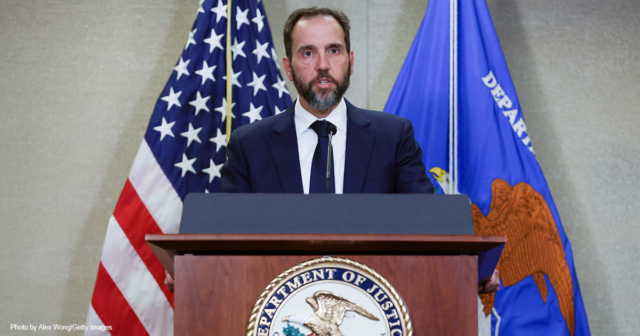Special Counsel Jack Smith’s Expansive Search Warrants and Legal Implications
By Amil Imani

“They won’t allow me to SPEAK?” — President Donald J. Trump
In light of the latest legal twist, wherein Special Counsel Jack Smith’s maneuvers have sparked a heated debate on the tightrope walk between privacy rights and the expansive reach of investigative tactics, I keep asking myself the question: Do we, as U.S. citizens, have any privacy rights or not?
The issuance of search warrants, laying out a sweeping data collection strategy, has disturbed the delicate balance between privacy rights and the extent of investigative measures and raised legitimate concerns about poking around in the private lives of individuals, especially those in the public eye.
This investigation has become controversial, supposedly centered on the timeline and circumstances surrounding former President Donald Trump’s actions leading up to the Capitol riot. These probes reek of political motives, seemingly aimed at tarnishing or undermining Trump. The once-thin line between lawful scrutiny and political agendas has not just blurred; it’s become the defining feature of this unfolding drama.
The imposition of a gag order, apparently designed to rein in the president’s exercise of First Amendment rights, shears through the surface between legal constraints and preserving the principles of free speech and pushes us to ponder the broader implications of handcuffing any public figure’s ability to criticize the government.
Smith’s arrogant move into demanding data from Trump and his followers raises many eyebrows. How else do we grasp the exceptional nature of this demand, which is essentially an illicit surveillance operation? Shouldn’t Smith be duty-bound to protect against such clear violations of the Constitution?
Such requests are disproportionate, especially when the charges against Trump lack a solid foundation. Striking the right balance between investigative reach and protecting civil liberties emerges as a crucial aspect of this ongoing narrative.
Then, adding a layer of complexity is the green light given to the gag order by a judge with an apparent partisan background. The concerns about potential political bias within the legal system intensify the debate over the fairness and impartiality of the investigation. This episode underscores the urgent need for a legal process that’s robust and transparent, free from perceived affiliations.
Smith’s filing asserts that the “narrowly tailored” order aims to prevent witness harassment. The proposed directive seeks to muzzle Trump from making statements about prospective witnesses’ identity, testimony, or credibility, along with any disparaging, inflammatory, or intimidating remarks about parties, witnesses, attorneys, court personnel, or potential jurors.
Trump’s response to the gag order accuses Smith’s team of misconduct, “they won’t allow me to SPEAK?”
The gag order is one of several contentious issues in the ongoing case led by Special Counsel Jack Smith.
The narrative takes a surprising twist, with Twitter initially resisting the search warrants and eventually complying, culminating in a fine for perceived non-compliance. This development delves into the complexities of private corporations navigating the intersection of user data protection and legal obligations, raising broader questions about the role of tech companies in safeguarding individual privacy rights.
Stepping back to examine the broader context of the investigation, particularly the events leading up to the January 6 Capitol riot, unravels a multifaceted tale. While the spotlight is on holding Trump responsible for others’ actions, recent revelations about FBI-associated individuals partaking in the riot add a layer of intricacy. This revelation underscores the nuanced challenges of pinpointing responsibility within a convoluted web of events.
The political arena takes center stage with Speaker Nancy Pelosi’s role in rejecting a request to deploy the National Guard on that tumultuous day. The interplay between political decision-making and security measures invites scrutiny, underscoring the need for a comprehensive understanding of the factors contributing to the events of January 6.
As this legal and political saga plays out, don’t we find ourselves thinking about how the judicial system should find a balance between thorough investigations concerned with protecting individual rights at all costs?
As in recent history, the potential sway of political motives in legal proceedings and the intricate interplay of actors shaping a defining moment also play on our minds. The necessity for a judicious and impartial examination of events remains paramount as the narrative unfolds further.
To conclude, here is a sane piece of advice for Special Counsel John Smith: Upholding fairness and justice should be your top priority in this critical state, and not be a part of a political witch-hunt that compromises the integrity of the legal process and unfairly targets President Donald Trump.
©2023. Amil Imani. All rights reserved.

This article is courtesy of DrRichSwier.com, an online community of citizen journalists, academics, subject matter experts, and activists to express the principles of limited government and personal liberty to the public, to policy makers, and to political activists. Please visit DrRichSwier.com for more great content.

